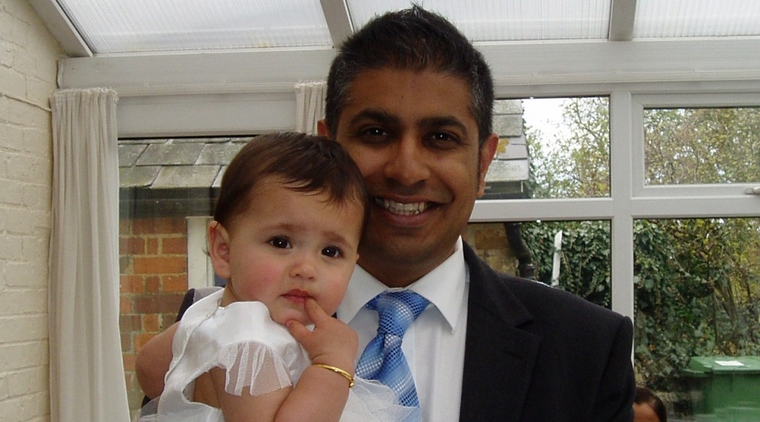Posted By: Amy Tubb
8th May 2021
3 minute read

Guest blog by Everyone’s Business Champion, Raj
In recognition of Maternal Mental Health Awareness week and today’s ‘Paternal Mental Health’ theme, I wanted to put a virtual pen to paper and share my experience.
In 2011, my wife and I got pregnant with our baby girl via our second IVF cycle. We both struggled with the process and it felt like a strangely formal business transaction. In fact, we ‘should’ (I don’t use that term lightly) have had counselling to help support and navigate us through the IVF journey. When my wife reached week 30 of her pregnancy she developed stress-induced psychosis and the Mental Health Crisis Team became involved.
Although medication was prescribed, my wife refused to take it. This meant that her condition worsened, and she went from being an inpatient in a local acute mental health unit to thankfully being moved to a specialist Mother and Baby (MBU) Unit. The whole process was traumatic as she was admitted to a unit that was not the most appropriate place to send her. Neither of us knew what was happening and the services were not working together. This siloed approach to working impacted both my wife and my own mental health.
Ten days after giving birth my wife attempted suicide, resulting in a fractured spine. Not only was she mentally unwell, but now also physically unable to look after herself, so she relocated to the MBU. This was absolutely the right decision, but it meant that I faced a 110-mile round-trip from home to work, work to MBU and back again to an empty house.
After another 2 weeks at the MBU, my wife was able to come home. However, six weeks later, and after a very traumatic birth and problems breastfeeding, I noticed her behaviour changing again. I raised my concern with the Mental Health Crisis Team.
This whole experience put an enormous strain on both family and work life. My career was impacted, and I struggled for a long while. Eventually, I was diagnosed with depression, took medication for just over a year and accessed private counselling.
There was a clear lack of formal support for partners back then. Although some improvements have been made, it’s still not enough and I do not want anyone to go through what I did.
Even now, I look back and believe that the primary and maternity staff we encountered could have responded better, faster, and safer had they been more aware of maternal mental health problems. Our situation might not have deteriorated quite so much and the impact on each of us and as a family could have been far less severe.
I know the NHS is depleted due to the pandemic and my heart goes out to each and every healthcare worker. However, support is needed at a national level that can be drawn upon locally to ensure staff working with women, partners and families receive appropriate specialist training. Having a settled relationship with knowledgeable and compassionate service providers is essential and we would have been lost without our Community Psychiatric Nurse.
I am delighted that there is now an interim MBU in Wales (though a permanent solution must be found), but saddened by the fact that women and families in the whole island of Ireland continue to go without this vital service. I dread to think how our story might have changed if we were in that position.
Let’s make sure everyone has access to superior local mental health services. If every link in the chain was strong, we wouldn’t miss anyone – that’s why it truly is #EveryonesBusiness.